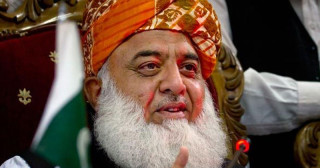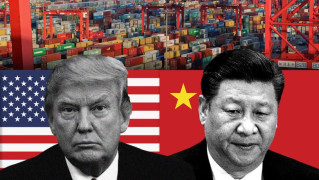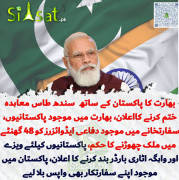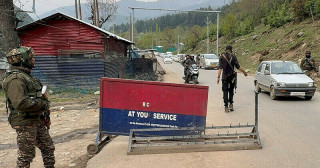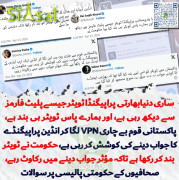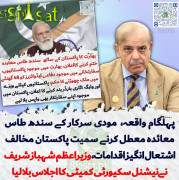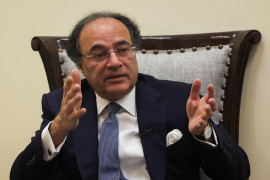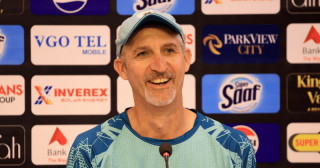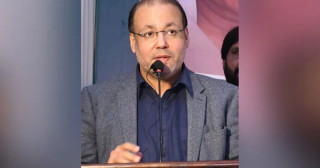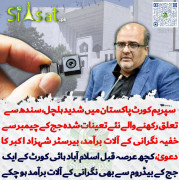You are using an out of date browser. It may not display this or other websites correctly.
You should upgrade or use an alternative browser.
You should upgrade or use an alternative browser.
Karachi, Hyderabad, Mirpurkhas Local Government news
- Thread starter bisaat
- Start date
Qalandari-1
Banned
Qalandari-1
Banned


Qalandari-1
Banned

Qalandari-1
Banned
Updates karna bhulna nai acha.
bisaat
Banned
this thread has nothing to do with superficial political ranting of PPP
only to analyse if these local governments were able to solve public issues or not after a period of four years.
to monitor their performance and post news from neutral sites like local city sections of jang, dawn, express etc
regards
only to analyse if these local governments were able to solve public issues or not after a period of four years.
to monitor their performance and post news from neutral sites like local city sections of jang, dawn, express etc
regards
Last edited:
bisaat
Banned
[h=1]Long-awaited law: Implications of the new bill[/h]
KARACHI: With four different transport departments working on more or less the same thing – managing the transport issues of the metropolis – the Sindh government has finally passed the Sindh Mass Transit Authority Bill.
The Sindh government already has a transport and mass transit department in Karachi. The other two are the Traffic Engineering Bureau (TEB) of Karachi Development Authority (KDA) and the Karachi Mass Transit Cell (KMTC). Moreover, the provision of managing transport also lies within the domain of the Karachi Metropolitan Corporation (KMC) as per the Sindh Local Government Act (SLGA), 2013, but the KMC has yet to launch such a department.
When the City District Government Karachi was operative, the transport and communication department was very powerful, said Dr Noman Ahmed of NED’s urban and infrastructure department. With the new SLGA, this department became very powerless.
After the Japan International Cooperation Agency’s studies in the city, the concept of BRTs sprung up and all the international advisers and consultants emphasised on a powerful department for planning, execution and integration of the BRTs, which could draw the budget independently, said Ahmed.
Ahmed told The Express Tribune that after that, SMTA was proposed, which is similar in nature to the Sindh Building Control Authority. There will be regional centres of the SMTA in Karachi, Hyderabad, Sukkur and other cities of the Sindh, said Ahmed.
However, on a question regarding the role of the local government in the mass transit, he pointed out that their job would only be to share responsibility in the provincial government’s allocated plan. For example, he explained that during the construction of the BRTs, the local government’s job is to deal with encroachments and they will have no say in the budget and execution of the project, which will raise routine maintenance issues.
Published in The Express Tribune, September 30th, 2016.
---------------------------------------------
Sindh govt has also now, as we are being made aware of has taken over mass transit of karachi department and renamed it sindh mass transit authority, just like Sindh building control authority, Sindh solid waste management board etc
it will be interesting how KMC being powerless manages transportation of karachi.
KARACHI: With four different transport departments working on more or less the same thing – managing the transport issues of the metropolis – the Sindh government has finally passed the Sindh Mass Transit Authority Bill.
The Sindh government already has a transport and mass transit department in Karachi. The other two are the Traffic Engineering Bureau (TEB) of Karachi Development Authority (KDA) and the Karachi Mass Transit Cell (KMTC). Moreover, the provision of managing transport also lies within the domain of the Karachi Metropolitan Corporation (KMC) as per the Sindh Local Government Act (SLGA), 2013, but the KMC has yet to launch such a department.
When the City District Government Karachi was operative, the transport and communication department was very powerful, said Dr Noman Ahmed of NED’s urban and infrastructure department. With the new SLGA, this department became very powerless.
After the Japan International Cooperation Agency’s studies in the city, the concept of BRTs sprung up and all the international advisers and consultants emphasised on a powerful department for planning, execution and integration of the BRTs, which could draw the budget independently, said Ahmed.
Ahmed told The Express Tribune that after that, SMTA was proposed, which is similar in nature to the Sindh Building Control Authority. There will be regional centres of the SMTA in Karachi, Hyderabad, Sukkur and other cities of the Sindh, said Ahmed.
However, on a question regarding the role of the local government in the mass transit, he pointed out that their job would only be to share responsibility in the provincial government’s allocated plan. For example, he explained that during the construction of the BRTs, the local government’s job is to deal with encroachments and they will have no say in the budget and execution of the project, which will raise routine maintenance issues.
Published in The Express Tribune, September 30th, 2016.
---------------------------------------------
Sindh govt has also now, as we are being made aware of has taken over mass transit of karachi department and renamed it sindh mass transit authority, just like Sindh building control authority, Sindh solid waste management board etc
it will be interesting how KMC being powerless manages transportation of karachi.
bisaat
Banned
[h=1]Joint account to be opened for KMC’s financial transactions[/h]
All cheques will have signatures of both Deputy Mayor Vohra and Metropolitan Commissioner Mendro
A joint account of Karachi Deputy Mayor Dr Arshad Abdullah Vohra and Metropolitan Commissioner Badar Jameel Mendro will be opened for all financial transactions of the Karachi Municipal Corporation (KMC).
This was disclosed to The News by Local Government Secretary Baqaullah Unnar at the Sindh Assembly on Friday. All cheques for funds had to have joint signatures, and for any funds a request had to be sent to the Sindh government, he said.
Unnar said both these persons would send a joint request to him for funds, and that request would be forwarded to the chief secretary. He noted that currently, the finance department was with the chief minister.
The chief secretary would send a summary for funds Minister for Local Government Jam Khan Shoro for approval, and if the minister deemed it fit, the summary would be sent to the chief minister.
Unnar said the summary after approval by the CM would be sent back to him and he being the competent authority would sign it.
When asked if the deputy mayor asked for Rs12 billion for development projects in Karachi, he said the same procedure had to be followed.
Syed Mustafa Kamal, as city nazim, had huge funds and out of which, he said, he had spent three billion rupees on the development of Karachi.
Former president Pervez Musharraf provided huge funds for Karachi and Kamal was not required to take approval from the chief minister as funds came directly from the federal government, but things would be very tough for incarcerated mayor Waseem Akhtar or his deputy. Now the KMC, KDA, KWSB and Sindh Building Control Authority are under the provincial government, and the minister for local governments is the chairman of all these civic agencies. The mayor has got no control over them.
Former minister for local government Agha Siraj Durrani said Mustafa Kamal had been given a free hand, but now the mayor would not enjoy such powers under the amended law.
A political observer said that “money makes the mayor go” and the mayor had to request to the government or the chief minister for funds.
Waseem Akhtar is the 23rd elected mayor of Karachi. Before he was arrested over various charges, he had said in reply to a query that “we know [that we will have financial powers], but we will get funds through the power of the masses”.
“We would still work for Karachi though we are aware of the fact that funds for Karachi will not be available.”
Deputy Mayor Vohra, talking to The News at his office on Friday, said the city council session would be just an introductory session and a strategy would be decided later. He said garbage lifting was a major issue of the city. He said he had already asked for funds for the development of the city.
The KDA, which has been restored after 15 years, is in a state of conflict with the KMC. The two agencies have to decide the issue of liabilities due to which the KMC and KDA staffers are at loggerheads and arguments take place daily.
The KDA had directed that the KMC offices be vacated from Civic Center by September 22, but the offices are still there.
The KDA is struggling for funds as its spokesman said they were trying to introduce low-cost housing schemes, but they had to funds to start any such scheme.
All cheques will have signatures of both Deputy Mayor Vohra and Metropolitan Commissioner Mendro
A joint account of Karachi Deputy Mayor Dr Arshad Abdullah Vohra and Metropolitan Commissioner Badar Jameel Mendro will be opened for all financial transactions of the Karachi Municipal Corporation (KMC).
This was disclosed to The News by Local Government Secretary Baqaullah Unnar at the Sindh Assembly on Friday. All cheques for funds had to have joint signatures, and for any funds a request had to be sent to the Sindh government, he said.
Unnar said both these persons would send a joint request to him for funds, and that request would be forwarded to the chief secretary. He noted that currently, the finance department was with the chief minister.
The chief secretary would send a summary for funds Minister for Local Government Jam Khan Shoro for approval, and if the minister deemed it fit, the summary would be sent to the chief minister.
Unnar said the summary after approval by the CM would be sent back to him and he being the competent authority would sign it.
When asked if the deputy mayor asked for Rs12 billion for development projects in Karachi, he said the same procedure had to be followed.
Syed Mustafa Kamal, as city nazim, had huge funds and out of which, he said, he had spent three billion rupees on the development of Karachi.
Former president Pervez Musharraf provided huge funds for Karachi and Kamal was not required to take approval from the chief minister as funds came directly from the federal government, but things would be very tough for incarcerated mayor Waseem Akhtar or his deputy. Now the KMC, KDA, KWSB and Sindh Building Control Authority are under the provincial government, and the minister for local governments is the chairman of all these civic agencies. The mayor has got no control over them.
Former minister for local government Agha Siraj Durrani said Mustafa Kamal had been given a free hand, but now the mayor would not enjoy such powers under the amended law.
A political observer said that “money makes the mayor go” and the mayor had to request to the government or the chief minister for funds.
Waseem Akhtar is the 23rd elected mayor of Karachi. Before he was arrested over various charges, he had said in reply to a query that “we know [that we will have financial powers], but we will get funds through the power of the masses”.
“We would still work for Karachi though we are aware of the fact that funds for Karachi will not be available.”
Deputy Mayor Vohra, talking to The News at his office on Friday, said the city council session would be just an introductory session and a strategy would be decided later. He said garbage lifting was a major issue of the city. He said he had already asked for funds for the development of the city.
The KDA, which has been restored after 15 years, is in a state of conflict with the KMC. The two agencies have to decide the issue of liabilities due to which the KMC and KDA staffers are at loggerheads and arguments take place daily.
The KDA had directed that the KMC offices be vacated from Civic Center by September 22, but the offices are still there.
The KDA is struggling for funds as its spokesman said they were trying to introduce low-cost housing schemes, but they had to funds to start any such scheme.
bisaat
Banned
[h=1]‘Mayor not a convict, should be allowed to attend sessions’[/h]
City Council unanimously passes resolution calling for Waseem
Akhtar’s presence at future council sessions; Vohra tells members
court permission acquired but home dept yet to give consent
The City Council on Monday unanimously passed a resolution urging the authorities concerned to allow Karachi mayor Waseem Akhtar to attend future council sessions.
The resolution was the second to have been passed by the City Council in favour of the mayor. The first one was approved at the inaugural session held last week and called for legal formalities against Akhtar to be speedily dispensed.
However, yesterday’s resolution calls for the mayor to be allowed to attend the council’s sessions, irrespective of the legalities pending against him.
Presented by Syed Khalil Imam and Aman Afridi of the Muttahida Qaumi Movement, the resolution states that ‘council members demand of the government that Mayor Waseem Akhtar be allowed to attend the council sessions’ and highlighted that ‘he [Akhtar] is still an accused in different criminal cases, not a convict’.
At the outset, the council members asked the acting mayor, Arshad Vohra, to explain why Akhtar was not being allowed to attend the sessions, despite having received the all clear from the courts. The council members demanded that be provided copies of the rules of business so they could ascertain under what law the mayor was barred from the house.
Vohra was categorical in his reply, “The court has permitted the city’s mayor to attend and chair the council sessions but the Sindh Home Department has not consented to this particular arrangement.”
He asserted that efforts were being made to convince the home department to accord permission. MQM council member Shamim Naqvi said the mayor was an elected representative and no charges had been framed against him at present, therefore, there was no legal justification to bar Akhtar from attending the council sessions.
On a point of attention, a Pakistan Peoples Party council member contended that previously the then deputy mayor, Nasreen Jalil, used to conduct the house’s proceedings and the mayor (nazim) was only present in the house at the time of annual budget proceedings. To this, Vohra responded that under the SLGO-2013, it was mandatory for the city mayor to attend all proceedings of the City Council. (look how cheap these PPP daakus are, defying their own laws to justify the illegal steps by their sindhi government)
Another MQM council member, Shamim Qazalbash, while speaking on a point of order, said that even in the national and provincial assemblies, members were allowed to attend sessions until they are charged with a crime. “The relaxation applies till as long as the person is an accused who is yet to be charged for a crime. The Karachi mayor, as we all know, is currently only accused in different cases; he is, under all legal precedence, not a convict.”
She added, “By not allowing the elected mayor to attend the sessions, the provincial government has placed the sanctity of this house at stake.”
-------------------------------------------
the sindh govt and PPP clearly wants to make obstacles to fail already powerless Karachi Local Government, PPP not honouring the court's decision to let Mayor attend the council sessions
City Council unanimously passes resolution calling for Waseem
Akhtar’s presence at future council sessions; Vohra tells members
court permission acquired but home dept yet to give consent
The City Council on Monday unanimously passed a resolution urging the authorities concerned to allow Karachi mayor Waseem Akhtar to attend future council sessions.
The resolution was the second to have been passed by the City Council in favour of the mayor. The first one was approved at the inaugural session held last week and called for legal formalities against Akhtar to be speedily dispensed.
However, yesterday’s resolution calls for the mayor to be allowed to attend the council’s sessions, irrespective of the legalities pending against him.
Presented by Syed Khalil Imam and Aman Afridi of the Muttahida Qaumi Movement, the resolution states that ‘council members demand of the government that Mayor Waseem Akhtar be allowed to attend the council sessions’ and highlighted that ‘he [Akhtar] is still an accused in different criminal cases, not a convict’.
At the outset, the council members asked the acting mayor, Arshad Vohra, to explain why Akhtar was not being allowed to attend the sessions, despite having received the all clear from the courts. The council members demanded that be provided copies of the rules of business so they could ascertain under what law the mayor was barred from the house.
Vohra was categorical in his reply, “The court has permitted the city’s mayor to attend and chair the council sessions but the Sindh Home Department has not consented to this particular arrangement.”
He asserted that efforts were being made to convince the home department to accord permission. MQM council member Shamim Naqvi said the mayor was an elected representative and no charges had been framed against him at present, therefore, there was no legal justification to bar Akhtar from attending the council sessions.
On a point of attention, a Pakistan Peoples Party council member contended that previously the then deputy mayor, Nasreen Jalil, used to conduct the house’s proceedings and the mayor (nazim) was only present in the house at the time of annual budget proceedings. To this, Vohra responded that under the SLGO-2013, it was mandatory for the city mayor to attend all proceedings of the City Council. (look how cheap these PPP daakus are, defying their own laws to justify the illegal steps by their sindhi government)
Another MQM council member, Shamim Qazalbash, while speaking on a point of order, said that even in the national and provincial assemblies, members were allowed to attend sessions until they are charged with a crime. “The relaxation applies till as long as the person is an accused who is yet to be charged for a crime. The Karachi mayor, as we all know, is currently only accused in different cases; he is, under all legal precedence, not a convict.”
She added, “By not allowing the elected mayor to attend the sessions, the provincial government has placed the sanctity of this house at stake.”
-------------------------------------------
the sindh govt and PPP clearly wants to make obstacles to fail already powerless Karachi Local Government, PPP not honouring the court's decision to let Mayor attend the council sessions
bisaat
Banned
[h=1]City's governance agenda: ‘Urban planning falls under local govt - not in Karachi’[/h]
Published: September 5, 2016
KARACHI:
It is universally accepted that urban planning falls under the jurisdiction and mandate of the local government – not so for Karachi
Urban planner and Shehri – Citizens for a Better Environment (CBE) member Farhan Anwar said this at a stakeholder workshop, titled ‘Defining a Good Local Governance Agenda for Karachi’. The workshop was organised by Shehri-CBE in collaboration with German foundation for liberal politics, Friedrich Naumann Stiftung fur die Freiheit, on Friday.
According to Anwar, the governance construct that includes local, provincial and federal governments is dysfunctional. The local government, he said, is sometimes controlled by the federal and sometimes by the provincial government. “Local government in all such tiers has been most affected and never empowered,” he said.
Anwar said that many of the local government functions are performed at the behest of the provincial government. “There is little autonomy [for] the local governments,” he said, adding that this dependence moves towards the federal government if there is army rule.

Talking about the challenges to viable local governance in Karachi, Anwar said that Karachi is not the city it was planned as. According to him, most of the planning documents and proposals for the city never saw the light of the day. From ‘Greater Karachi Plan-1952’ to the ‘Karachi Strategic Development Plan-2020’, nothing was actually done on ground, he said.
He was of the view that the Sindh Solid Waste Management Board (SSWMB) should have been further decentralised from the local government to the community level but the Sindh government took control over it.
“Urban planning is now under the Sindh Building Control Authority, which is also unheard of,” he said, adding that even the Karachi Water and Sewerage Board’s policy mandate is under the Sindh government.
According to him, the council of the Karachi Municipal Corporation (KMC) is supposed to be an elected body as per the Sindh Local Government Ordinance provisions. However, he said, the planning and implementation agency for Karachi’s development was Karachi Development Authority (KDA), which was a parallel agency run by technocrats and was in no way accountable to the KMC and, hence, to the people.
Shehri – CBE member Sameer Hamid Dodhy said that Pakistan is a funny place. Muttahida Qaumi Movement (MQM) was given a free pass during former president General (retd) Pervez Musharraf’s regime, he said. “They were all-powerful, with no checks and balances,” he said, pointing out that the story is different now. According to him, it is the responsibility of the citizens to keep checks and balances on their elected representatives and to make them realise that they will not vote for them if they violate laws and do not work for the betterment of the citizens.
Dodhy said that there is a law that gives all citizens access to information. However, that law is very weak in Sindh, he pointed out. The law gives the right to every citizen to inquire how much elected representatives have spent on a particular project. Dodhy pointed out that the provincial government does not involve the inhabitants of the city in their projects. “Input from citizens has to be taken in all projects, small or mega,” he said.
Powerless elected chairpersons
The Sindh Local Government Act, 2013, is the height of injustice, claimed Jamaat-e-Islami councillor Junaid Mukati. “We don’t have powers,” he said. “I cannot even place gutter caps or change a secretary, clerk or sweeper in my union committee (UC).” He added that the city’s garbage will be lifted by the provincial assembly, whose mandate is to do legislation.
“It is indeed difficult to approach a bureaucrat but not an elected representative of the local government,” said MQM’s elected chairperson from District East UC-22, Abdul Salam Khan
Sindh’s local government minister has been elected from Ghotki while the transport minister has been elected from Jacobabad but they are handling Karachi, lamented MQM’s elected chairperson from UC-25, Syed Farhan Ali.
Published in The Express Tribune, September 5th, 2016.
-------------------------------------------
Garbage collection from Karachi, Hyderabad and Mirpurkhas is also the duty of Sindh Government and not mayor of karachi
Published: September 5, 2016
KARACHI:
It is universally accepted that urban planning falls under the jurisdiction and mandate of the local government – not so for Karachi
Urban planner and Shehri – Citizens for a Better Environment (CBE) member Farhan Anwar said this at a stakeholder workshop, titled ‘Defining a Good Local Governance Agenda for Karachi’. The workshop was organised by Shehri-CBE in collaboration with German foundation for liberal politics, Friedrich Naumann Stiftung fur die Freiheit, on Friday.
According to Anwar, the governance construct that includes local, provincial and federal governments is dysfunctional. The local government, he said, is sometimes controlled by the federal and sometimes by the provincial government. “Local government in all such tiers has been most affected and never empowered,” he said.
Anwar said that many of the local government functions are performed at the behest of the provincial government. “There is little autonomy [for] the local governments,” he said, adding that this dependence moves towards the federal government if there is army rule.

Talking about the challenges to viable local governance in Karachi, Anwar said that Karachi is not the city it was planned as. According to him, most of the planning documents and proposals for the city never saw the light of the day. From ‘Greater Karachi Plan-1952’ to the ‘Karachi Strategic Development Plan-2020’, nothing was actually done on ground, he said.
He was of the view that the Sindh Solid Waste Management Board (SSWMB) should have been further decentralised from the local government to the community level but the Sindh government took control over it.
“Urban planning is now under the Sindh Building Control Authority, which is also unheard of,” he said, adding that even the Karachi Water and Sewerage Board’s policy mandate is under the Sindh government.
According to him, the council of the Karachi Municipal Corporation (KMC) is supposed to be an elected body as per the Sindh Local Government Ordinance provisions. However, he said, the planning and implementation agency for Karachi’s development was Karachi Development Authority (KDA), which was a parallel agency run by technocrats and was in no way accountable to the KMC and, hence, to the people.
Shehri – CBE member Sameer Hamid Dodhy said that Pakistan is a funny place. Muttahida Qaumi Movement (MQM) was given a free pass during former president General (retd) Pervez Musharraf’s regime, he said. “They were all-powerful, with no checks and balances,” he said, pointing out that the story is different now. According to him, it is the responsibility of the citizens to keep checks and balances on their elected representatives and to make them realise that they will not vote for them if they violate laws and do not work for the betterment of the citizens.
Dodhy said that there is a law that gives all citizens access to information. However, that law is very weak in Sindh, he pointed out. The law gives the right to every citizen to inquire how much elected representatives have spent on a particular project. Dodhy pointed out that the provincial government does not involve the inhabitants of the city in their projects. “Input from citizens has to be taken in all projects, small or mega,” he said.
Powerless elected chairpersons
The Sindh Local Government Act, 2013, is the height of injustice, claimed Jamaat-e-Islami councillor Junaid Mukati. “We don’t have powers,” he said. “I cannot even place gutter caps or change a secretary, clerk or sweeper in my union committee (UC).” He added that the city’s garbage will be lifted by the provincial assembly, whose mandate is to do legislation.
“It is indeed difficult to approach a bureaucrat but not an elected representative of the local government,” said MQM’s elected chairperson from District East UC-22, Abdul Salam Khan
Sindh’s local government minister has been elected from Ghotki while the transport minister has been elected from Jacobabad but they are handling Karachi, lamented MQM’s elected chairperson from UC-25, Syed Farhan Ali.
Published in The Express Tribune, September 5th, 2016.
-------------------------------------------
Garbage collection from Karachi, Hyderabad and Mirpurkhas is also the duty of Sindh Government and not mayor of karachi
bisaat
Banned
[h=1]Deputy mayor, municipal commissioner to jointly run city[/h]
September 27, 2016
The Karachi Metropolitan Corporation issued a circular on Monday notifying that in the absence of the mayor, the deputy mayor and municipal commissioner would jointly operate its accounts.
KMC municipal commissioner Dr Badar Jamil in a circular titled “Clarification regarding financial powers of deputy mayor” stated that as per the government notification bearing number RO (LG)MIS/4(40)/2016 and dated September 6, 2016, the mayor and municipal commissioner had to jointly operate the KMC funds.
However, in the absence of the mayor, KMC, the deputy mayor shall exercise those powers and functions. In this regard, the Section 80 (2) of the Sindh Local Government Council 2013 has clearly mentioned that when the mayor by means of absence from Pakistan or for any other reason was unable to exercise their powers, the deputy mayor, shall exercise them.
Therefore, all accounts of the KMC shall be operated and maintained with the joint signatures of deputy mayor and the municipal commissioner.
Prior to the election of the mayor and the deputy mayor, the municipal commissioner had delegated powers to operate accounts of KMC to different directors associated with the KMC’s finance department.
On September 23, local government secretary Baqaullah Unnar told The News that a joint account of Karachi deputy mayor Dr Arshad Abdullah Vohra and metropolitan commissioner Badar Jamil would be opened for the financial transactions of the KMC.
All cheques for funds had to have joint signatures, and for any funds a request had to be sent to the Sindh government, he said.
Unnar said both these persons would send a joint request to him for funds, and that request would be forwarded to the chief secretary. He noted that currently, the finance department was with the chief minister.
The chief secretary would send a summary for funds Minister for Local Government Jam Khan Shoro for approval, and if the minister deemed it fit, the summary would be sent to the chief minister.
Unnar said the summary after approval by the CM would be sent back to him and he being the competent authority would sign it.
When asked if the deputy mayor asked for Rs12 billion for development projects in Karachi, he said the same procedure had to be followed.
September 27, 2016
The Karachi Metropolitan Corporation issued a circular on Monday notifying that in the absence of the mayor, the deputy mayor and municipal commissioner would jointly operate its accounts.
KMC municipal commissioner Dr Badar Jamil in a circular titled “Clarification regarding financial powers of deputy mayor” stated that as per the government notification bearing number RO (LG)MIS/4(40)/2016 and dated September 6, 2016, the mayor and municipal commissioner had to jointly operate the KMC funds.
However, in the absence of the mayor, KMC, the deputy mayor shall exercise those powers and functions. In this regard, the Section 80 (2) of the Sindh Local Government Council 2013 has clearly mentioned that when the mayor by means of absence from Pakistan or for any other reason was unable to exercise their powers, the deputy mayor, shall exercise them.
Therefore, all accounts of the KMC shall be operated and maintained with the joint signatures of deputy mayor and the municipal commissioner.
Prior to the election of the mayor and the deputy mayor, the municipal commissioner had delegated powers to operate accounts of KMC to different directors associated with the KMC’s finance department.
On September 23, local government secretary Baqaullah Unnar told The News that a joint account of Karachi deputy mayor Dr Arshad Abdullah Vohra and metropolitan commissioner Badar Jamil would be opened for the financial transactions of the KMC.
All cheques for funds had to have joint signatures, and for any funds a request had to be sent to the Sindh government, he said.
Unnar said both these persons would send a joint request to him for funds, and that request would be forwarded to the chief secretary. He noted that currently, the finance department was with the chief minister.
The chief secretary would send a summary for funds Minister for Local Government Jam Khan Shoro for approval, and if the minister deemed it fit, the summary would be sent to the chief minister.
Unnar said the summary after approval by the CM would be sent back to him and he being the competent authority would sign it.
When asked if the deputy mayor asked for Rs12 billion for development projects in Karachi, he said the same procedure had to be followed.
bisaat
Banned
KMC demands funds from Sindh government to clean city
KARACHI: Deputy Mayor Dr Arshad Vohra has said the city can get rid of heaps of garbage if Sindh government provides one billion rupees grant to Karachi Metropolitan Corporation (KMC).
He was holding an official briefing at KMC building on Thursday. A presentation in this respect was given to him by the officials of municipal service of KMC. The Deputy Mayor was told that the city's areas can be cleaned within two months if the body gets funds for this purpose.
He said the funds are required for the contract with a Chinese firm Changyi Kangjie Sanitation Engineering Company. The officials said the funds would be utilized for repairing machinery, equipment and vehicles, fuel, up-gradation of landfill sites, public awareness drive and remuneration of sanitary employees.
A summary on the same issue was also moved by KMC some time ago on the directions of the then Local Government Minister Sharjeel Memon to the government of Sindh. But former Chief Secretary Chaudary Aijaz rejected it on the pretext of corruption.
President Sjjan Union KMC Zulfiqar Shah said the cleanliness of the city is not possible under any scheme as around 160 heavy vehicles are rusting in the department and 80 out of them cannot be repaired. Besides, the equipment is not enough to carry out this job completely.
The employees' strength of Solid Waste Management department KMC is 433 and annual salary expenditure of these employees comes around to Rs 515 million. The KMC and six District Municipal Corporations spend around Rs 5.5 billion annually on lifting garbage.
He said first priority should be given to the welfare of employees of the department in order to encourage them for carrying out the cleaning job. Several attempts were made in past by former Sindh Chief Minister Qaim Ali Shah to clean the city but all went in vain due to empathic attitude of KMC officials.
Senior Director Municipal Services Masood Alam said the responsibility of cleaning the city rests on the CM as he is the Chairman of Sindh Solid Management Authority. After the transfer of powers to the CM, KMC has stopped cleaning 40 main roads in the city.
KARACHI: Deputy Mayor Dr Arshad Vohra has said the city can get rid of heaps of garbage if Sindh government provides one billion rupees grant to Karachi Metropolitan Corporation (KMC).
He was holding an official briefing at KMC building on Thursday. A presentation in this respect was given to him by the officials of municipal service of KMC. The Deputy Mayor was told that the city's areas can be cleaned within two months if the body gets funds for this purpose.
He said the funds are required for the contract with a Chinese firm Changyi Kangjie Sanitation Engineering Company. The officials said the funds would be utilized for repairing machinery, equipment and vehicles, fuel, up-gradation of landfill sites, public awareness drive and remuneration of sanitary employees.
A summary on the same issue was also moved by KMC some time ago on the directions of the then Local Government Minister Sharjeel Memon to the government of Sindh. But former Chief Secretary Chaudary Aijaz rejected it on the pretext of corruption.
President Sjjan Union KMC Zulfiqar Shah said the cleanliness of the city is not possible under any scheme as around 160 heavy vehicles are rusting in the department and 80 out of them cannot be repaired. Besides, the equipment is not enough to carry out this job completely.
The employees' strength of Solid Waste Management department KMC is 433 and annual salary expenditure of these employees comes around to Rs 515 million. The KMC and six District Municipal Corporations spend around Rs 5.5 billion annually on lifting garbage.
He said first priority should be given to the welfare of employees of the department in order to encourage them for carrying out the cleaning job. Several attempts were made in past by former Sindh Chief Minister Qaim Ali Shah to clean the city but all went in vain due to empathic attitude of KMC officials.
Senior Director Municipal Services Masood Alam said the responsibility of cleaning the city rests on the CM as he is the Chairman of Sindh Solid Management Authority. After the transfer of powers to the CM, KMC has stopped cleaning 40 main roads in the city.
bisaat
Banned
Dependent on Sindh government: cash-strapped KMC needs to generate new sources of income
September 12, 2016
Funds-starved Karachi Metropolitan Corporation (KMC) may not be in a position to resolve civic issues of this mega city without generating new sources of funds because presently, it is totally dependent on the Sindh government.
Hand of representatives of Karachi's local councils are tied as they have meagre financial resources to feed a large army of politically- recruited employees who are not needed because not-equipped with required skills in addition to their unwillingness to work.
It is alleged that in their last honeymoon period of political ties, PPP and MQM had recruited thousands of employees in departments such as KMC and Karachi Water and Sewerage Board (KWSB) purely on political basis. This huge army of political employees prefer to work for their parties instead of serving on their government jobs, gulp a lion's share of funds in terms of salaries and allowances. With a huge amount being spent on them, meagre funds remained for improvement in civic infrastructure.
Under these circumstances, the KMC and KWSB have to rid them of surplus employees but that would be a grave political risk. The other option is to seek more funds from the Sindh government which seemed difficult in view of ongoing political power tussle in Karachi.
However, a middle path is that the local elected representatives enact new rules to increase their revenues to generate sufficient funds.
Deputy Mayor Karachi Arshad Vohra also complained that the most pressing issue of the metropolis was lack of funds because the city was not getting its due share of funds from the provincial government. He said that Karachi had an immense potential in terms of industry and economy, and whole world was giving focus on it. He said this while talking to journalists at a cheque distribution ceremony for the retired employees of the DMC Central on Saturday.
Vohra said they were facing serious financial issues due to non-working of the Provincial Finance Commission (PFC). He said that they had planned many mega projects for Karachi and already asked the federal government to support them.
He termed the China-Pakistan Economic Corridor (CPEC) a good omen for the country and also demanded share of Karachi in the CPEC projects as well. He said that Solid Waste Management Board (SWMB) didn't have any vision nor it was a working entity; hence it was not serving the city that suffered due to heaps of garbage, filth, overflowing sewerage water, etc.
However, Vohra announced that a big cleanliness campaign in Karachi would begin soon after the Eid.
It may be noted that several cleanliness campaigns and deadlines for Karachi announced by both sitting and former chief ministers of Sindh but that proved an eye-wash because "Karachi is still a Kachra-chi," a disgruntled citizen said for filth and garbage in the city.
September 12, 2016
Funds-starved Karachi Metropolitan Corporation (KMC) may not be in a position to resolve civic issues of this mega city without generating new sources of funds because presently, it is totally dependent on the Sindh government.
Hand of representatives of Karachi's local councils are tied as they have meagre financial resources to feed a large army of politically- recruited employees who are not needed because not-equipped with required skills in addition to their unwillingness to work.
It is alleged that in their last honeymoon period of political ties, PPP and MQM had recruited thousands of employees in departments such as KMC and Karachi Water and Sewerage Board (KWSB) purely on political basis. This huge army of political employees prefer to work for their parties instead of serving on their government jobs, gulp a lion's share of funds in terms of salaries and allowances. With a huge amount being spent on them, meagre funds remained for improvement in civic infrastructure.
Under these circumstances, the KMC and KWSB have to rid them of surplus employees but that would be a grave political risk. The other option is to seek more funds from the Sindh government which seemed difficult in view of ongoing political power tussle in Karachi.
However, a middle path is that the local elected representatives enact new rules to increase their revenues to generate sufficient funds.
Deputy Mayor Karachi Arshad Vohra also complained that the most pressing issue of the metropolis was lack of funds because the city was not getting its due share of funds from the provincial government. He said that Karachi had an immense potential in terms of industry and economy, and whole world was giving focus on it. He said this while talking to journalists at a cheque distribution ceremony for the retired employees of the DMC Central on Saturday.
Vohra said they were facing serious financial issues due to non-working of the Provincial Finance Commission (PFC). He said that they had planned many mega projects for Karachi and already asked the federal government to support them.
He termed the China-Pakistan Economic Corridor (CPEC) a good omen for the country and also demanded share of Karachi in the CPEC projects as well. He said that Solid Waste Management Board (SWMB) didn't have any vision nor it was a working entity; hence it was not serving the city that suffered due to heaps of garbage, filth, overflowing sewerage water, etc.
However, Vohra announced that a big cleanliness campaign in Karachi would begin soon after the Eid.
It may be noted that several cleanliness campaigns and deadlines for Karachi announced by both sitting and former chief ministers of Sindh but that proved an eye-wash because "Karachi is still a Kachra-chi," a disgruntled citizen said for filth and garbage in the city.
bisaat
Banned
Karachi’s 90% population not paying tax: Vohra
22-Sep-16
KARACHI: Deputy Mayor Karachi Arshad Wohra has said that local government has the authority to collect Municipal Tax but 90 percent of citizens availing all the municipal services and utilities don't pay this tax. Karachi is country's biggest city and has the literacy rate of more than 70 percent but it's a victim of financial injustices. Karachi is not being given its due financial share since it contributes 98 percent of the tax revenue collected by Sindh government.
Addressing the International Conference on Managing Megacities 2016 organized by Department of Public Administration Karachi University and Shar School of Public Policy and Government, George Mason University USA at HEJ Auditorium, University of Karachi, Deputy Mayor Karachi said that dialogue with Sindh government is underway to get the deserved financial share of the city in this regard.
Pinpointing the issues of metropolis he said that main issues of the city are overpopulation, traffic management, garbage collection and transportation.
"Governor and the Sindh govt have assured financial support to the local government. 12,000 tons of garbage is produced daily in Karachi and KMC is only capable of lifting 4,000 tons and due to this gap billions of tons of garbage is lying in the city", Dr. Vohra said.
While talking to the media, the Deputy Mayor said that students have a pivotal role in resolving the issues of Karachi since they could be vital in creating the awareness about the issues people face and their solutions. Billboards are removed on the orders of the Supreme Court and the traffic management has been improved on the main roads of the city. New parks will also be built. He demanded the Sindh government to release a special fund to the local government in order to uplift the billions of garbage in the city.
Chairman Geography Dept. KU Meritorious Professor Dr. Jamil Hasan Kazmi gave a keynote address on ecology and lamented upon the fact that environment and marine life preservation never remained the priority of our decision makers due to the lack of political commitment.
Syeda Hoor-ul-Ain from Dept. of Public Administration KU while presenting her paper said that Karachi as a mega city faces huge transportation challenges ranging from rampant urbanization and limited budgets to inefficient infrastructures. The issues of over-crowding, traffic congestion, and poor quality of service and ill-fitness of the vehicles are the emerging challenges in the transportation sector.
Faculty members of Dept. of Public Administration KU Mustafa Hyder and Tehmina Faisal while presenting their paper said that Provision of clean water and sanitation facilities is a crucial aspect of governmental administrative institutions around the globe.
Zohair Ashir from Hisaar Foundation said that realities of water availability, water regime, population growth and climate conditions have changed considerably, however there has been no change in the ways that people use and manage water.
22-Sep-16
KARACHI: Deputy Mayor Karachi Arshad Wohra has said that local government has the authority to collect Municipal Tax but 90 percent of citizens availing all the municipal services and utilities don't pay this tax. Karachi is country's biggest city and has the literacy rate of more than 70 percent but it's a victim of financial injustices. Karachi is not being given its due financial share since it contributes 98 percent of the tax revenue collected by Sindh government.
Addressing the International Conference on Managing Megacities 2016 organized by Department of Public Administration Karachi University and Shar School of Public Policy and Government, George Mason University USA at HEJ Auditorium, University of Karachi, Deputy Mayor Karachi said that dialogue with Sindh government is underway to get the deserved financial share of the city in this regard.
Pinpointing the issues of metropolis he said that main issues of the city are overpopulation, traffic management, garbage collection and transportation.
"Governor and the Sindh govt have assured financial support to the local government. 12,000 tons of garbage is produced daily in Karachi and KMC is only capable of lifting 4,000 tons and due to this gap billions of tons of garbage is lying in the city", Dr. Vohra said.
While talking to the media, the Deputy Mayor said that students have a pivotal role in resolving the issues of Karachi since they could be vital in creating the awareness about the issues people face and their solutions. Billboards are removed on the orders of the Supreme Court and the traffic management has been improved on the main roads of the city. New parks will also be built. He demanded the Sindh government to release a special fund to the local government in order to uplift the billions of garbage in the city.
Chairman Geography Dept. KU Meritorious Professor Dr. Jamil Hasan Kazmi gave a keynote address on ecology and lamented upon the fact that environment and marine life preservation never remained the priority of our decision makers due to the lack of political commitment.
Syeda Hoor-ul-Ain from Dept. of Public Administration KU while presenting her paper said that Karachi as a mega city faces huge transportation challenges ranging from rampant urbanization and limited budgets to inefficient infrastructures. The issues of over-crowding, traffic congestion, and poor quality of service and ill-fitness of the vehicles are the emerging challenges in the transportation sector.
Faculty members of Dept. of Public Administration KU Mustafa Hyder and Tehmina Faisal while presenting their paper said that Provision of clean water and sanitation facilities is a crucial aspect of governmental administrative institutions around the globe.
Zohair Ashir from Hisaar Foundation said that realities of water availability, water regime, population growth and climate conditions have changed considerably, however there has been no change in the ways that people use and manage water.
bisaat
Banned
it appears that, Rangers are more powerful in Local Government then mayor
Rangers clean Hyderabad streets

HYDERABAD: Rangers teamed up with local municipal personnel and started cleaning up different areas of the city on Friday.
Rangers kickstarted a cleaning drive in Hyderabad today as they worked with municipal staff to collect garbage from various areas of the city including Market and Amil Colony.
Rangers officials oversaw the cleanup efforts and helped with the work. They said the drive has been initiated to give the city a clean look.
Rangers clean Hyderabad streets

HYDERABAD: Rangers teamed up with local municipal personnel and started cleaning up different areas of the city on Friday.
Rangers kickstarted a cleaning drive in Hyderabad today as they worked with municipal staff to collect garbage from various areas of the city including Market and Amil Colony.
Rangers officials oversaw the cleanup efforts and helped with the work. They said the drive has been initiated to give the city a clean look.
bisaat
Banned
KMC left with no fuel to run fire brigades, ambulances
Published: October 1, 2016
KARACHI: The Karachi Metropolitan Corporation (KMC) may once again face acute shortage of petrol as it has become a fuel defaulter with Rs0.45 million in arrears and does not have any fuel left to run its fire brigades and ambulance.
This was confirmed by KMC media director Ali Hassan Sajid. The corporation has defaulted Rs0.45 million, he said. According to sources, the KMC has no fuel left to run its emergency services, including fire brigades and ambulances.
NAB investigation: SHC orders travel ban on KMC’s land officer
KMC faces such issues every now and then but in cases of emergency the supply of fuel has never been stopped, claimed vehicle director Muhammad Usman. Currently, he said, they have no fuel in reserve, but if any emergency situation arises, the petrol pump never refuses to supply fuel.
Sajid explained that all the revenue-generating departments of the KMC have already been handed over to the District Municipal Corporations (DMCs). The grant that KMC receives is spent on paying salaries of employees, he added.
After the revival of the Karachi Development Authority (KDA), said Sajid, KMC now gets half of the Rs5-million grant from the Sindh government that it used to get previously. Once the KMC has the amount in its accounts, it will be able to pay back the fuel arrears, he said.
However, municipal commissioner Badar Jameel said that KMC will pay the amount and fuel supply will resume by Monday. He said that they have written a letter to the local government secretary regarding the financial condition of the KMC but no attention was paid to it.
Officials smell a rat at KMC
“We have no amount in our accounts to even pay salaries,” he said, adding that whatever repair work is being carried out on the roads of the city is being done by the Sindh government as KMC has no cash at the moment to initiate any project. The major revenue collection department, local tax department, has already been transferred to the DMCs, pointed out Jameel. Now, KMC is left with estate department and the charged parking department, from which it hardly collects any revenue.
Published in The Express Tribune, October 2nd, 2016.
Published: October 1, 2016
KARACHI: The Karachi Metropolitan Corporation (KMC) may once again face acute shortage of petrol as it has become a fuel defaulter with Rs0.45 million in arrears and does not have any fuel left to run its fire brigades and ambulance.
This was confirmed by KMC media director Ali Hassan Sajid. The corporation has defaulted Rs0.45 million, he said. According to sources, the KMC has no fuel left to run its emergency services, including fire brigades and ambulances.
NAB investigation: SHC orders travel ban on KMC’s land officer
KMC faces such issues every now and then but in cases of emergency the supply of fuel has never been stopped, claimed vehicle director Muhammad Usman. Currently, he said, they have no fuel in reserve, but if any emergency situation arises, the petrol pump never refuses to supply fuel.
Sajid explained that all the revenue-generating departments of the KMC have already been handed over to the District Municipal Corporations (DMCs). The grant that KMC receives is spent on paying salaries of employees, he added.
After the revival of the Karachi Development Authority (KDA), said Sajid, KMC now gets half of the Rs5-million grant from the Sindh government that it used to get previously. Once the KMC has the amount in its accounts, it will be able to pay back the fuel arrears, he said.
However, municipal commissioner Badar Jameel said that KMC will pay the amount and fuel supply will resume by Monday. He said that they have written a letter to the local government secretary regarding the financial condition of the KMC but no attention was paid to it.
Officials smell a rat at KMC
“We have no amount in our accounts to even pay salaries,” he said, adding that whatever repair work is being carried out on the roads of the city is being done by the Sindh government as KMC has no cash at the moment to initiate any project. The major revenue collection department, local tax department, has already been transferred to the DMCs, pointed out Jameel. Now, KMC is left with estate department and the charged parking department, from which it hardly collects any revenue.
Published in The Express Tribune, October 2nd, 2016.
bisaat
Banned
Karachi’s transport system in chaos
September 26, 2016
KARACHI: There will be as many as four transport departments working on more or less the same thing – managing the transport issues of the metropolis – in the near future.
The Sindh government already has a transport and mass transit department. The other two are the traffic engineering bureau (TEB) of Karachi Development Authority (KDA) and the Karachi mass transit cell (KMTC). Moreover, the provision of managing transport also lies within the domain of the Karachi Metropolitan Corporation (KMC) according to the Sindh Local Government Act (SLGA), 2013 but the KMC is yet to launch such a department.
200 buses for Lahore reach Karachi
According to the director of KDA’s TEB- formally known as the transport and communication department when it was under KMC – Qazi Abdul Qadir, initially the department belonged to the KDA but when the City District Government Karachi (CDGK) was formed it was handed over to the local government. Then, when the KMC was formed in 2013, the transport department went back to the KDA, but was working under the umbrella of the KMC for three years, and hence all the revenue from the transport department used to go to the KMC.
After the revival of the KDA, he said it has automatically been devolved to the KDA and renamed the TEB. Their functions, according to him, will be to look at road safety issues, traffic volume count, designs and geometrical improvements of different intersections and pedestrian bridges of the city.
The provincial government’s decision to devolve the TCD to the KDA may lead to administrative chaos as a tussle over territorial jurisdictions between the KDA and KMC may arise.
KMC’s role?
According to KMC municipal services senior director Masood Alam, there has been a mix and match regarding the division of the transport department between the two agencies [KMC and KDA] and the transition committee is working on that.
Karachi’s Green Line bus will be more beautiful than Lahore metro: PM
He said that the Compressed Natural Gas buses, which belonged to the KMC’s transport department, would remain with them and whenever the KMC would revive its transport department again, CNG buses would be its component.
When asked about the fate of the pedestrian bridges, he said that there would be more territorial divisions in that regard. The pedestrian bridges falling under the KMC’s circle, according to him, would be handled by the KMC and KDA would look after pedestrian bridges in their circles. KDA’s Qadir seconded the statement.
However, an official of the KMC, on the condition of anonymity, told The Express Tribune that if territorial divisions take place, there will be massive administrative chaos in the city. KDA, according to him, would claim ownership over housing schemes and KMC would follow suit. “There will be a fight for every street corner of the city,” the official said.
Funds collection
If all the pedestrian bridges of the city are handed over to the KDA, the revenue which the KMC used to earn from the pedestrian bridges through its local tax department – devolved to the District Municipal Corporations (DMCs) around eight months ago -the Sindh government would pocket all that money, said the KMC official.
The official lamented that the chief of the KDA will only be implementing the Sindh government’s policies as the local government minister heads the authority’s governing body, while the city’s commissioner is the vice-chairman followed by one member each of the provincial and national assembly. Then comes the KDA director-general.
In an ideal situation, according to the official, two departments must not be performing the same functions in the city. The KMTC, which is under the KDA, looks after the mass transit lines of the city reports to the KDA chief as well as to the Sindh government’s transport and mass transit department. Likewise, the KMC’s transport department, when it is revived, will have the same functions as that of the KDA’s TED, explained the official.
Published in The Express Tribune, September 26th, 2016.
------------------------------------------
KMC, i have been arguing has been totally emptied and made totally disabled and paralysed by the Sindhi daakus and Sindh government daakus will be making maximum corruption from all the Karachi local government txes and funds while all blame will be put on KMC
regards
September 26, 2016
KARACHI: There will be as many as four transport departments working on more or less the same thing – managing the transport issues of the metropolis – in the near future.
The Sindh government already has a transport and mass transit department. The other two are the traffic engineering bureau (TEB) of Karachi Development Authority (KDA) and the Karachi mass transit cell (KMTC). Moreover, the provision of managing transport also lies within the domain of the Karachi Metropolitan Corporation (KMC) according to the Sindh Local Government Act (SLGA), 2013 but the KMC is yet to launch such a department.
200 buses for Lahore reach Karachi
According to the director of KDA’s TEB- formally known as the transport and communication department when it was under KMC – Qazi Abdul Qadir, initially the department belonged to the KDA but when the City District Government Karachi (CDGK) was formed it was handed over to the local government. Then, when the KMC was formed in 2013, the transport department went back to the KDA, but was working under the umbrella of the KMC for three years, and hence all the revenue from the transport department used to go to the KMC.
After the revival of the KDA, he said it has automatically been devolved to the KDA and renamed the TEB. Their functions, according to him, will be to look at road safety issues, traffic volume count, designs and geometrical improvements of different intersections and pedestrian bridges of the city.
The provincial government’s decision to devolve the TCD to the KDA may lead to administrative chaos as a tussle over territorial jurisdictions between the KDA and KMC may arise.
KMC’s role?
According to KMC municipal services senior director Masood Alam, there has been a mix and match regarding the division of the transport department between the two agencies [KMC and KDA] and the transition committee is working on that.
Karachi’s Green Line bus will be more beautiful than Lahore metro: PM
He said that the Compressed Natural Gas buses, which belonged to the KMC’s transport department, would remain with them and whenever the KMC would revive its transport department again, CNG buses would be its component.
When asked about the fate of the pedestrian bridges, he said that there would be more territorial divisions in that regard. The pedestrian bridges falling under the KMC’s circle, according to him, would be handled by the KMC and KDA would look after pedestrian bridges in their circles. KDA’s Qadir seconded the statement.
However, an official of the KMC, on the condition of anonymity, told The Express Tribune that if territorial divisions take place, there will be massive administrative chaos in the city. KDA, according to him, would claim ownership over housing schemes and KMC would follow suit. “There will be a fight for every street corner of the city,” the official said.
Funds collection
If all the pedestrian bridges of the city are handed over to the KDA, the revenue which the KMC used to earn from the pedestrian bridges through its local tax department – devolved to the District Municipal Corporations (DMCs) around eight months ago -the Sindh government would pocket all that money, said the KMC official.
The official lamented that the chief of the KDA will only be implementing the Sindh government’s policies as the local government minister heads the authority’s governing body, while the city’s commissioner is the vice-chairman followed by one member each of the provincial and national assembly. Then comes the KDA director-general.
In an ideal situation, according to the official, two departments must not be performing the same functions in the city. The KMTC, which is under the KDA, looks after the mass transit lines of the city reports to the KDA chief as well as to the Sindh government’s transport and mass transit department. Likewise, the KMC’s transport department, when it is revived, will have the same functions as that of the KDA’s TED, explained the official.
Published in The Express Tribune, September 26th, 2016.
------------------------------------------
KMC, i have been arguing has been totally emptied and made totally disabled and paralysed by the Sindhi daakus and Sindh government daakus will be making maximum corruption from all the Karachi local government txes and funds while all blame will be put on KMC
regards
bisaat
Banned
KMC’s transport department becomes inactive
23-Sep-16
Daily Times
KARACHI: The transport department of Karachi Metropolitan Corporation (KMC) is still inactive due to intervention by Karachi Development Authority (KDA).
The department is now under the control of provincial transport department as KMC has no manpower to handle this system.
According to Act 2013, KMC was responsible to handle transport, intercity bus terminal, bus terminals, CNG buses, bus stops, pedestal bridges, and Yousuf Goth's bus terminal besides keeping coordination with traffic police and the provincial government.
KDA's Traffic Engineering Bureau (TEB) has been restored a couple of days ago and it has stopped KMC's transport department from functioning, while the officials have also been transferred.
TEB head Qazi Abdul Khaliq confirmed the reports that the transport and commutation department has been closed down. According to TEB Act 1985, KDA was responsible to improve traffic schemes in the city, road safety projects, traffic signals, work of geometrical city traffic plan, and surveys in Karachi.
Moreover, the agreement between KMC and a private transport company did not get extension because of conflict with KDA. About 36 CNG buses are still being run by a private transport company, and no one in KMC or KDA is looking into the affairs of the transport company.
The company has never paid any amount to KMC so far as per the contract agreement. The company has even demanded 26 CNG buses in addition but no agreement was reached in this effect.
The agreements regarding 170 bus stops and pedestal bridges have also become null and void. KMC had given the operation of 36 CNG buses (the investment of Rs 180 million) to a private company on 24 Aug 2014 on a two-year contract on political grounds which has expired but no extension has been given to them because of the row between KMC and KDA.
================================
in conclusion, PPP gave contract to one of its relative to run CNG buses in Karachi while no money was paid by PPP's relative to the KMC. and now entire transport department shifted towards KDA, still under Sindh government and thun making Mayor of Karachi unable to run public transports in the city.
it is expected maximum corruption will keep happening in public transport department of Karachi under Sindh government
23-Sep-16
Daily Times
KARACHI: The transport department of Karachi Metropolitan Corporation (KMC) is still inactive due to intervention by Karachi Development Authority (KDA).
The department is now under the control of provincial transport department as KMC has no manpower to handle this system.
According to Act 2013, KMC was responsible to handle transport, intercity bus terminal, bus terminals, CNG buses, bus stops, pedestal bridges, and Yousuf Goth's bus terminal besides keeping coordination with traffic police and the provincial government.
KDA's Traffic Engineering Bureau (TEB) has been restored a couple of days ago and it has stopped KMC's transport department from functioning, while the officials have also been transferred.
TEB head Qazi Abdul Khaliq confirmed the reports that the transport and commutation department has been closed down. According to TEB Act 1985, KDA was responsible to improve traffic schemes in the city, road safety projects, traffic signals, work of geometrical city traffic plan, and surveys in Karachi.
Moreover, the agreement between KMC and a private transport company did not get extension because of conflict with KDA. About 36 CNG buses are still being run by a private transport company, and no one in KMC or KDA is looking into the affairs of the transport company.
The company has never paid any amount to KMC so far as per the contract agreement. The company has even demanded 26 CNG buses in addition but no agreement was reached in this effect.
The agreements regarding 170 bus stops and pedestal bridges have also become null and void. KMC had given the operation of 36 CNG buses (the investment of Rs 180 million) to a private company on 24 Aug 2014 on a two-year contract on political grounds which has expired but no extension has been given to them because of the row between KMC and KDA.
================================
in conclusion, PPP gave contract to one of its relative to run CNG buses in Karachi while no money was paid by PPP's relative to the KMC. and now entire transport department shifted towards KDA, still under Sindh government and thun making Mayor of Karachi unable to run public transports in the city.
it is expected maximum corruption will keep happening in public transport department of Karachi under Sindh government
Last edited:
© Copyrights 2008 - 2025 Siasat.pk - All Rights Reserved. Privacy Policy | Disclaimer|





